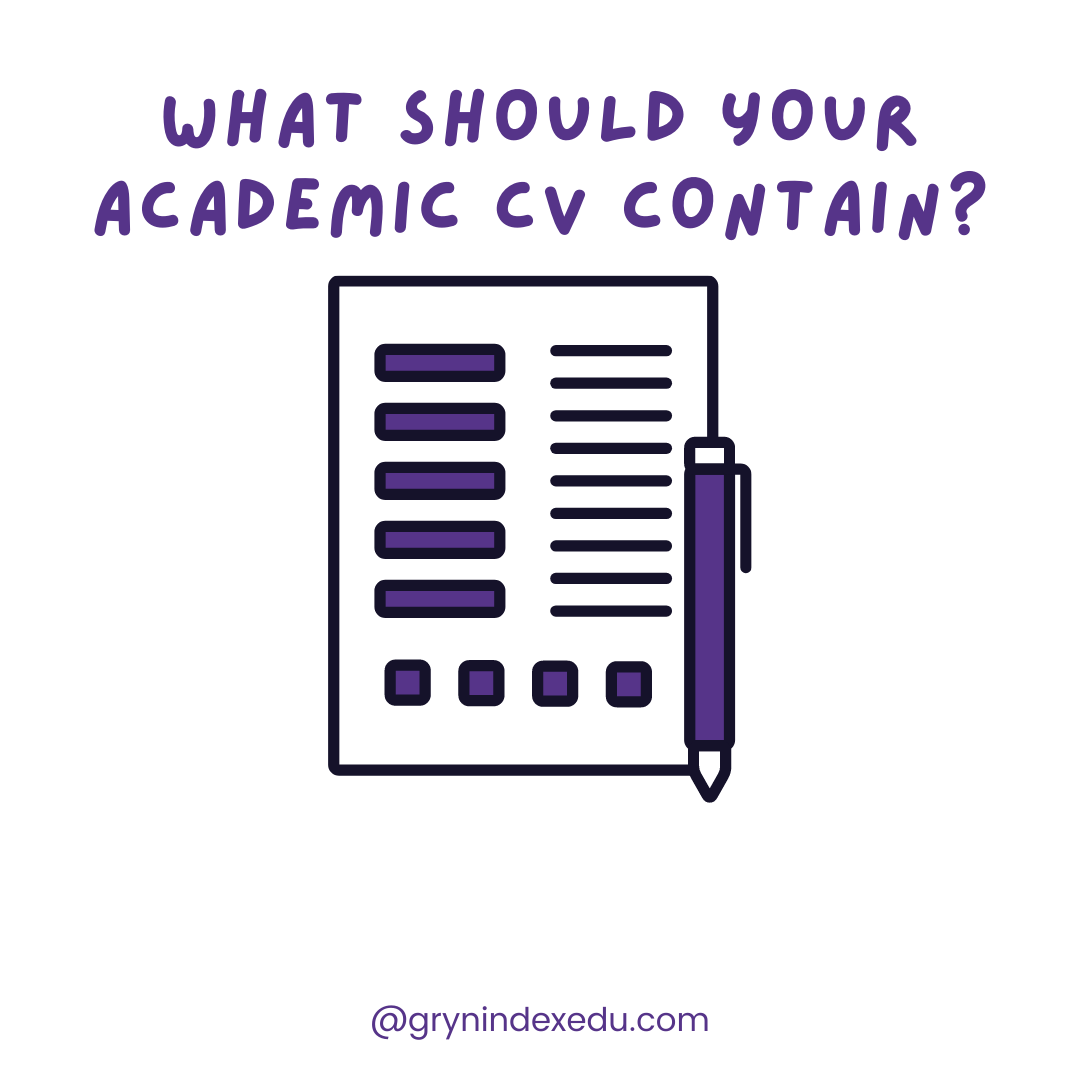CV is short for curriculum vitae and thoroughly describes a person’s education, professional qualifications, experiences, and accomplishments concisely. Sometimes an academic CV is written differently from a career-focused CV.
The CV is often written to contain vital academic and career information about the owner. It should be tailored to communicate only a set of information relevant to a particular area of concern—for example, further academic pursuit.
Unlike the general one, an academic CV is a full, detailed description of one’s educational background, career experiences, research, and publications. It should be written to mirror the owner’s interest in a particular academic field while spotlighting the impact such a person could make if granted an opportunity to study further in that discipline.
What does an ideal academic CV contain?
An academic CV should contain every notable post-secondary information, emphasizing details related to the discipline of interest. In addition, it should include the following:
Contact Information
This is ostensibly the first part of every CV, including an academic one. The contact information on your CV should include
- your name in full
- professional affiliations & title (if any)
- school & home address
- phone & email contact.
If you have an updated and active LinkedIn profile, you can add a link to your profile in this section too.
Research objective and summary statement
The conventional research objective also called a research interest on the CV, is a concise description of an intended research plan.
It shows that your program expectations are in line with its contents. In comparison, the summary statement should summarize your academic and career highlights to establish your qualification for the position.
Educational background
Here, you should enumerate every post-secondary qualification in detail. Your educational background and qualifications should be listed in descending order, starting with the most recent one.
While at it, endeavour to provide every detail concerning the degree type, institution name & location, date of graduation, project, dissertation, thesis title, and other education-related information.
Professional experiences
This is quite an extensive part of a CV. It should highlight every one of your professional experiences, including
- Volunteer work & internships (if there are many of them, simply select the most relevant ones),
- Your professional affiliations and memberships
- Licenses and qualifications (if you didn’t include them in the educational background section)
- Career and research experiences
- Teaching experience (if any)
Professional accomplishments
The rule here is that no relevant accomplishment is too small. Therefore, every professional and academic achievement should be included in the CV, right after experiences.
Besides indicating the owner’s commitment to excellence in the mind of anyone that reads through it, these accomplishments will go a long way to establish your ability to withstand the academic challenges of the program you are applying for.
Accomplishments such as awards & honours, conference talks, publications & books (especially those related to your field of interest), academic grants, etc., should all be contained in your academic CV.
However, while at it, ensure that you are entirely honest about every piece of information.
Languages
This is another essential addition to a CV, especially if you are proficient in other languages besides your country’s official one. If you understand any different language besides your native and lingua franca, do well to state it and indicate your proficiency level. For example, “fully proficient, advanced, or basic.”
References
References by renowned experts in your field of interest will significantly impact your CV’s substantiveness and provide you with a pedestal for favourable consideration.
The references on your CV are the admission committee’s only window to get an outsider’s impression of you; hence, you must be meticulous about your choice of referee, their professional reputation, and willingness to indulge further questions from the school -assuming there is any.
Contact us to start your study abroad application process today!

